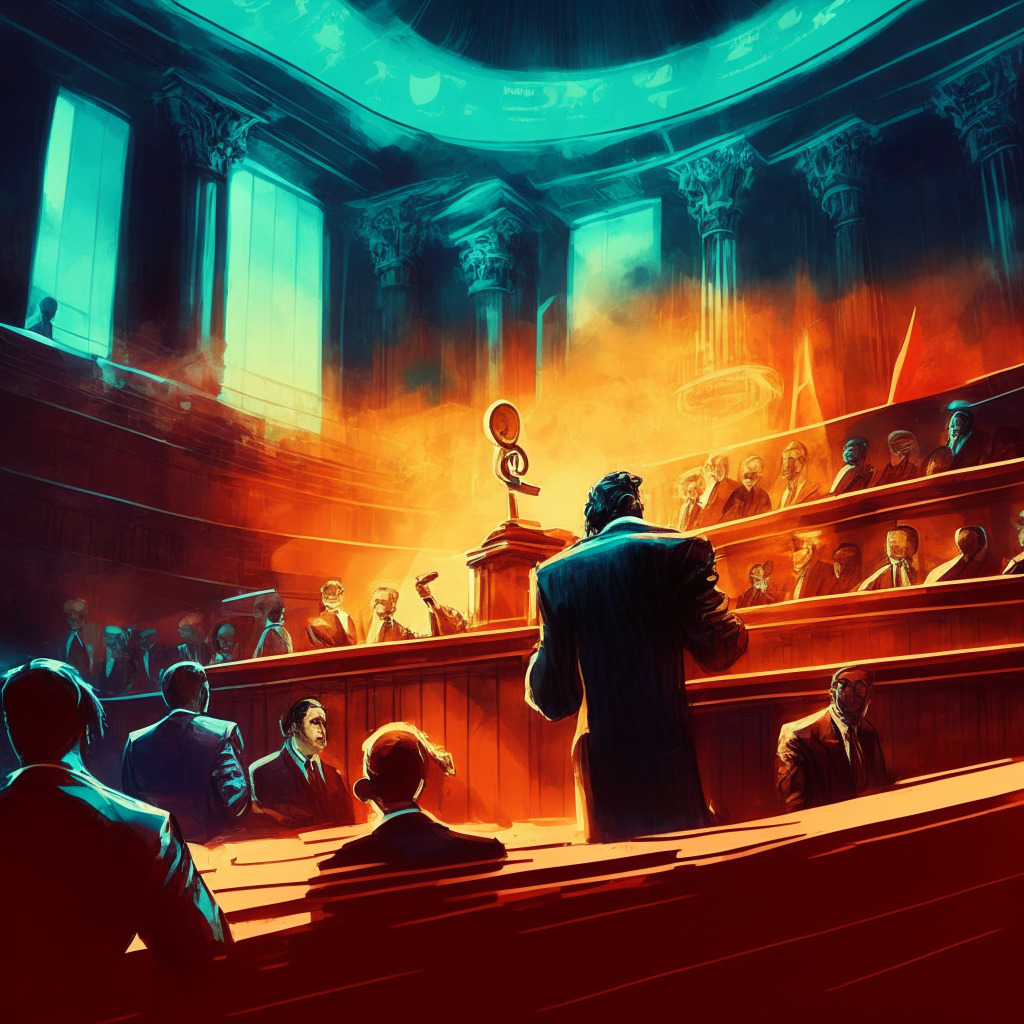Chris Larsen, Ripple Labs’ Chair, criticized the current Biden administration’s approach to cryptocurrency policy, suggesting its ambiguity has caused confusion within the sector. Larsen also argued that current policies push the industry offshore, naming Dubai, Singapore, and London as emerging global blockchain capitals. Meanwhile, the race for the first US spot Ethereum ETF is heating up.
Search Results for: Chris Larsen
Ripple’s Expansion in the UK: Crypto Boom or Regulatory Burden?
Ripple, a US fintech and blockchain firm, is expanding its British presence amidst regulatory challenges in the US. This follows the UK’s strategic efforts to become a global hub for crypto and fintech firms, including legislation regulating cryptocurrencies and stablecoins. Critics, however, fear this may limit open innovation.
Ripple vs SEC: Hypocrisy vs Urgency in the Battle for Crypto Regulation
Ripple’s Chief Legal Officer, Stuart Alderoty, criticizes the SEC’s inconsistent approach to enforcing crypto regulations, hinting at a potential power struggle within the SEC. This legal conflict between Ripple and the SEC may significantly shape the future of the global crypto space.
Regulatory Ripples: The SEC’s Case against Ripple and the Future of Stablecoins in Canada
“Judge Torres’s ruling in the ongoing Ripple case might bring regulatory clarity to the crypto community. Meanwhile, Coinbase suspended certain stablecoins in Canada, raising questions on whether this regulatory rigour might affect the growth of blockchain’s future or secure the crypto future.”
Regulatory Tango: Analysis of the SEC Vs. Ripple Labs and Future Implications on Crypto Regulations
The ongoing case between the SEC and Ripple Labs involves a potential $1.3 billion unregistered securities offering. Recently, Judge Analisa Torres ruled that Ripple’s XRP sales didn’t qualify as securities offerings. However, the SEC plans to appeal this decision, indicating the complex and evolving landscape of blockchain regulation.
Pivotal Ripple Vs SEC Case: Decoding Effects on Blockchain Regulations & Future Impacts
“The SEC is seeking an appeal against a court ruling relating to Ripple Labs. This could influence other pending cases, causing potential discrepancies in rulings across jurisdictions. The inconsistencies of US crypto regulations on a global scale are highlighted; while SEC classifies most cryptocurrencies as securities, other regulators class them as property. This ambiguity is causing uncertainty among investors and companies, emphasizing the need for clearer, consistent regulations.”
XRP Lawsuit, Ripple’s Legal Battle and the Significance of Amicus Briefs in Crypto Regulations
The XRP lawsuit filed by the SEC against Ripple Labs impacts prices and businesses, while XRP holders’ lawyer, John Deaton, invests in Amicus Curiae SpendTheBits. This highlights the risks, regulations, and complexities in the cryptocurrency market, emphasizing the need for trust and integrity in blockchain development.
Ripple’s Conundrum: SEC Settlement vs Costly Legal Battle – Weighing the Outcomes
Attorney John Deaton suggests that Ripple may benefit from settling with the US SEC, as the costs of a legal battle could impact the company’s long-term goals. Ripple faces challenges in building trust with regulators, clients, and business partners, and a settlement could help unlock new opportunities.
Undulating Landscape of Cryptocurrencies: Ripple’s XRP Court Battles and the Rise of $WSM
“The Torres Ruling has fostered enthusiasm among XRP supporters, although Ripple’s maneuvers with XRP remain unclear. Despite positive court decisions, Ripple and XRP still exist in a ‘regulatory grey area’. In related news, the rise of Wall Street Memes’ $WSM underlines the dynamic nature of the cryptocurrency landscape, with potential for significant reward and risk.”
Navigating the Ripple Effect: SEC’s Token Tug-of-War and Its Broader Implications
Ripple Labs objects to the SEC’s appeal of a judge’s ruling on the XRP token’s nature. The SEC wants to reclassify XRP as a security when sold to the public. Their appeal is paused until a resolution, highlighting the potential implications for future cryptocurrency lawsuits. Arguments involve whether selling XRP equates to an investment contract and jurisdiction over sales to institutional investors. Ripple’s response promises to challenge classifications of these sales as securities transactions.
Ripple’s Partial Legal Victory: A Shift in Crypto Legislation or a Fleeting Triumph?
The New York court’s recent ruling in the Ripple case provides partial clarity on the controversial issue of compliance with securities legislation. Despite Ripple’s partial victory, the blockchain platform’s institutional token sale still oversteps federal securities laws. The court’s decision sparked a 24% increase in XRP price, demonstrating regulatory considerations’ significant impact on crypto markets.
SEC Crackdown on Crypto: eToro Restrictions, Binance Lawsuit, and XRP’s Future Debate
eToro US restricts trading in Algorand, Decentraland, Dash, and Polygon due to SEC classification as securities. The platform continues supporting cryptoassets, while working with regulators to shape the future of the crypto industry and ensure investor access.
Ripple Appoints Nielsen’s CFO Warren Jenson: A Step Towards Transparency Amidst Legal Battles
Crypto firm Ripple appoints Nielsen’s CFO Warren Jenson to its board of directors and chair of the audit committee. Jenson’s focus on transparency will be key in his new role, as he believes prioritizing transparency is crucial for cryptocurrency companies to revolutionize traditional financial infrastructure. Despite ongoing legal challenges, Ripple remains determined to uphold integrity in the crypto industry.
SEC-Ripple Legal Battle: Analyzing Document Sealing Decisions and Cryptocurrency Regulations
US District Court Judge Analisa Torres denied the SEC’s request to seal documents related to a 2018 speech by former director Bill Hinman in its ongoing case against Ripple. The development raises questions on clearer regulations surrounding digital assets and their implications on future regulatory measures for cryptocurrencies.













